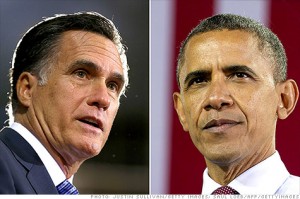THOMAS MASTORAS
<Co-Editor-in-Chief>
That Mitt Romney fellow, a felon, is he not? A tax cheat? A tool of the rich? A corporate raider, antithetical to all that is American? The foregoing is the substance of President Obama’s re-election campaign. Hardly hopeful. Hardly impelling change. Quite apart from a unifying message, a coherent narrative, or a constructive plan to redress America’s economic malaise, hope and change is dead.
 The President’s re-election campaign is arguably one of the lowest, smallest campaigns ever seen. Whereas 2008 represented a watershed moment in American politics, the 2012 campaign for the Democrats is, quite simply, petty. Devoid of new ideas or a meaningful plan to restore economic prosperity, the crux of the President’s campaign is attack and division. Blame everything on the President’s predecessor, or the “millionaires and billionaires” on Wall Street. While the Republicans offer a serious, if controversial, plan to restore growth in the economy, the President trumpets cuts to Big Bird and mocks Mitt Romney’s inelegant reference to “binders of women.” In a serious time, this is both unpresidential and unserious.
The President’s re-election campaign is arguably one of the lowest, smallest campaigns ever seen. Whereas 2008 represented a watershed moment in American politics, the 2012 campaign for the Democrats is, quite simply, petty. Devoid of new ideas or a meaningful plan to restore economic prosperity, the crux of the President’s campaign is attack and division. Blame everything on the President’s predecessor, or the “millionaires and billionaires” on Wall Street. While the Republicans offer a serious, if controversial, plan to restore growth in the economy, the President trumpets cuts to Big Bird and mocks Mitt Romney’s inelegant reference to “binders of women.” In a serious time, this is both unpresidential and unserious.
The reason for this strategy, however, is basic. The President’s record on the economy is appalling. He refuses to run on his record. Instead of championing his accomplishments – some of which are rightly laudable – the strategy is to demonize Mitt Romney. But this strategy cannot obfuscate the economic reality in the United States and the President’s economic failure.
Fifteen percent of Americans live in poverty. More collect food stamps or are unemployed or underemployed after four years under this President. The size of the American work force has shrunk, as people exit the labour market dejected and jobless. Growth is anemic—worse in 2012 than 2011, and worse still in 2011 than 2010. Economic uncertainty is restraining growth in the private sector. Concurrently, the President continues to propound divisive rhetoric against those who have succeeded, nonchalantly pitting groups of Americans against one another. The President’s bold re-election idea is a tax increase for the wealthy, something that would do very little to address the deficit while retarding economic growth. Ignoring the fact that this policy is inconsistent with Keynesian economics (the economic ideology to which the President and his advisors subscribe), it is, on its face, inimical to growth and jobs. To make matters worse, all of this is from a President whose own budget was unanimously rejected in Congress, including by his own party.
 To be fair, he inherited a very difficult economic situation. The American economy was shedding 800,000 jobs per month. But the President was also elected with unified control of all branches of government and a wealth of political capital. Four years down the road, with persistent trillion dollar deficits, this is his economy. Unfortunately, the policies he has put into effect have, by just about any economic metric, failed the American people. Cynicism has replaced hope; attack and divide has replaced change. While this sort of campaign may yield a second term, one thing is certain: the era of hope and change is over.
To be fair, he inherited a very difficult economic situation. The American economy was shedding 800,000 jobs per month. But the President was also elected with unified control of all branches of government and a wealth of political capital. Four years down the road, with persistent trillion dollar deficits, this is his economy. Unfortunately, the policies he has put into effect have, by just about any economic metric, failed the American people. Cynicism has replaced hope; attack and divide has replaced change. While this sort of campaign may yield a second term, one thing is certain: the era of hope and change is over.
